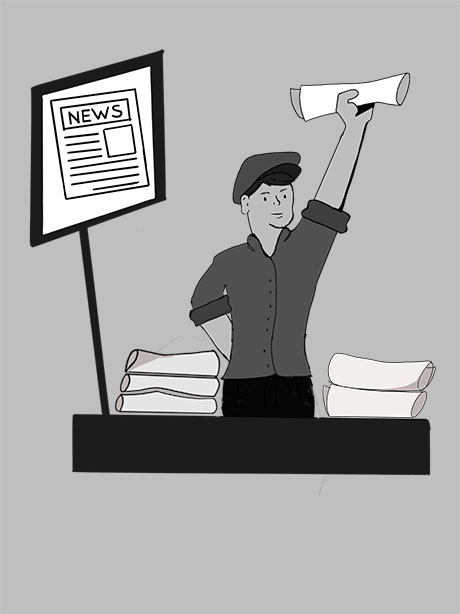
Journalists cover everything from current news and political effects on the world to entertainment events and celebrities lives. Student journalists cover similar topics. Current news and entertainment is high on the list of stories but just like local papers, a college newspaper keeps the stories they report on as locally focused as possible.
“Press freedom is a noble idea, but in reality it’s a threat- a threat to shady politicians, crooked corporations, military censors and bungling bureaucrats,” Tim Harrower said in his book, Inside Reporting.
As journalists have reported on the news through the years, readers have contested what is written, sometimes to a point of legal action. There are laws that protect journalists and newspapers during reporting. Information with credible sources are fact checked before published, however, sometimes a newspaper may need a little help.
The Student Press Law Center (SPLC) is available for college and high school papers to help requests for state and local records as well as provides information about press rights. Virtual lawyers are available to speak with for advice and questions.
“The SPLC uses the law to help students of all ages meaningfully participate in civic life and learn essential skills, ethics, and values through the vehicle of journalism,” the SPLC website said.
“The nonprofit Student Press Law Center provides free legal help to high school and college student journalists and their advisers on all sorts of media law issues, including censorship, libel, copyright law and access to public information,” Mike Hiestand, Senior Legal Counsel at Student Press Law Center, said. ”We often work with students as they are putting together stories on sensitive topics and offer suggestions for tightening up their journalism and sometimes referrals to local media law attorneys where necessary.”
Laws are in place to help journalists use their First Amendment rights and inform the public of current events. Most conflicts lie in when a reader doesn’t agree with what is written in the article. Arguments, lawsuits, and protests can come about when a large amount of people disagree.
The First Amendment protects the right of free speech and expression, so expressing thoughts and feelings are protected from legal action. When disagreements are vocalized against a small college publication is when the SPLC steps in to help.
However, learning about a topic or a viewpoint that you disagree with is more beneficial than most think. When the information that is consumed is only in agreement with what you already believe, the way of thinking stays the same. It doesn’t have the chance to evolve with the new information. Your mind gets stuck in a viewpoint of just one side of the world’s story.
In the instance of only learning about the same point of view as the parents and teachers that taught you, it feeds into a spiral of never learning what you believe without outside influence. One way that teens and young adults have separated themselves from what they were taught is through college. College is complete with encountering new events and knowledge and learning how to understand and encounter uncomfortable ideas.
The importance of being at college is to learn something new, experience life, learn from your mistakes, and to form your own opinion. This is done through the process of encountering different people with differences of opinions, whether you agree or disagree. Although a lot of that is through courses and textbooks, another resource of learning about new things and viewpoints is through the college newspaper. Having a school paper that is protected to share different points of view helps expand the minds of the students that read it everyday.